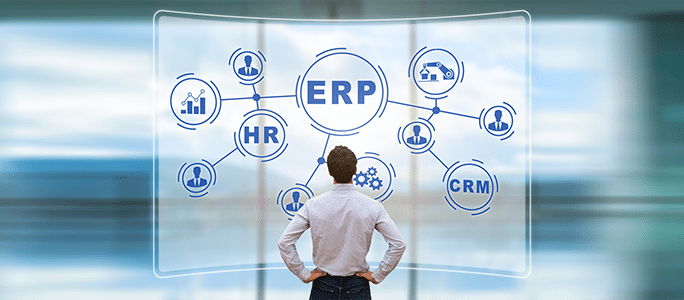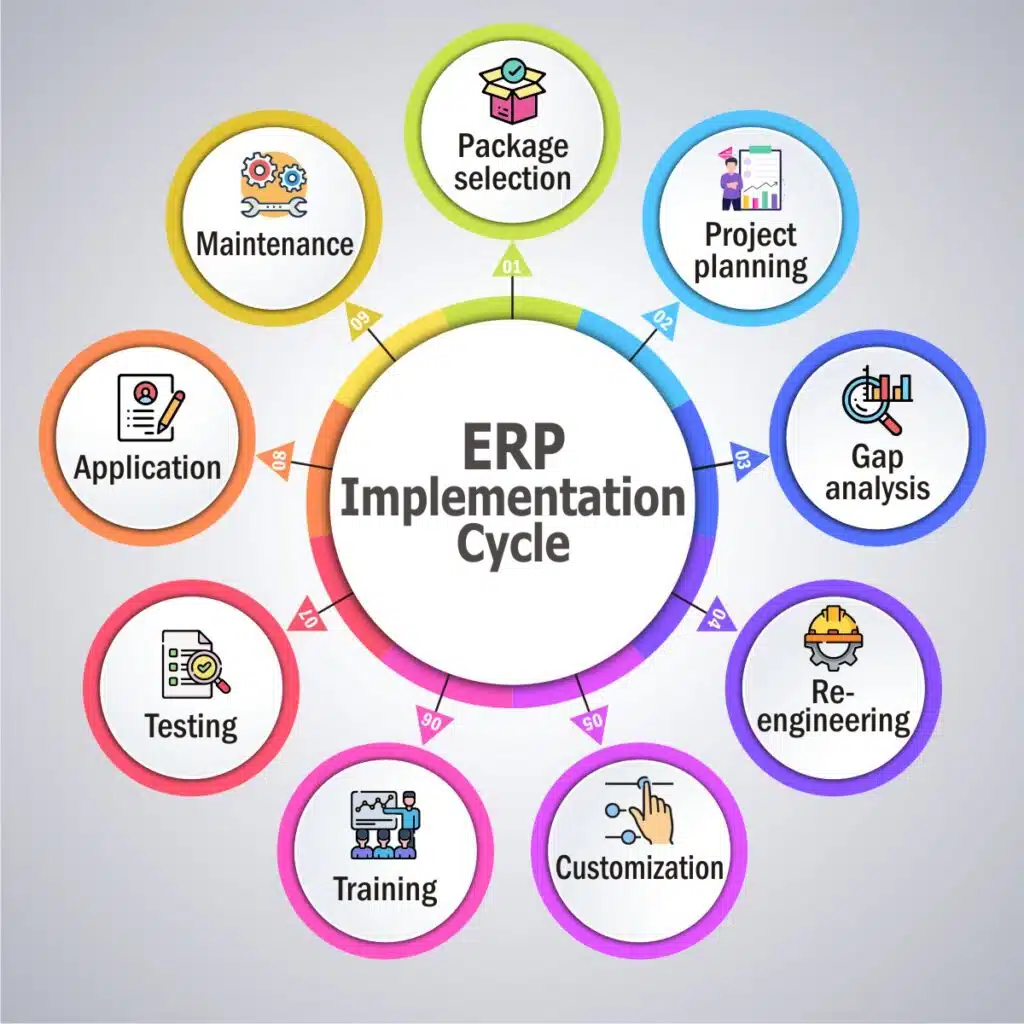
Enterprise Resource Planning (ERP) software is like central nervous system of an industry. As central nervous system integrates information from various parts of the body, and facilitates communication among various organs, an ERP software integrates various processes and communicates among various departments of an organization.
Considering the importance of ERP solution, understanding the lifecycle of an ERP system becomes very crucial. It requires thorough understanding, knowledge, and know-how of the ERP implementation process to make the project a success.
Many organizations fail to understand importance of the whole ERP implementation cycle and hence their ERP project, time, money, efforts- everything sink in blackhole.
If it sounds complicated and scary, you are correct. It is! But do not worry, this blog will be an immense help to understand the whole ERP lifecycle. Therefore, stay tuned till the end to save your precious time, money, efforts, and reputation.
Different Stages of ERP Implementation:

Once ERP need is realized by an organization, talks around the ERP project begins. The whole lifecycle of ERP project is long, complicated, and time consuming. Every stage must be given due importance because it lays a foundation to the next stage.
The following are the Stages of ERP Implementation:
Stage 1: Package Selection–
Every business has its unique challenges. One software cannot cater to all the businesses. Thus, choosing an ERP software is the most important stage. Out of available options in the market, choose options that have capabilities to cater to the requirements of your business.
Stage 2: Project Planning–
It is necessary to have a detailed plan to sail through the complex process of implementation and keep you on track. Planning helps you to look at the project on more granular level and ensure the resources are well utilized. It helps to mitigate last minute surprises, and chaos.
Planning includes making a team which will handle various aspects of the project. The team may consist of project manager and representatives of departments that will use the system. It must involve senior managers to ensure that resources are allotted in right quantity and time.
Stage 3: Gap Analysis–
Gap analysis is the process of analysing the current business processes and the outcome that you intend to reap out of this project. The step involves understanding of current issues, including process inefficiencies and requirement for the ERP system.
In a way we can say that gap analysis finds out the expected results from an ERP software. This stage helps to focus on desired outcomes and provides a laser like direction to the development of the project.
Stage 4: Re-engineering–
This ERP implementation stage helps to restructure the procedures and redesign systems to achieve improvements in business processes. It involves designing of new and more efficient workflows and other business processes.
At this stage, involve end-users also as they are the ones who know processes better and can suggest the changes to meet them. Involving them also ensure that they are ready to take the new system and feel comfortable to the change, which otherwise will be difficult.
Stage 5: Customization–
With re-engineered processes, the new system must be customized to accommodate processes and procedures. Along with customization, the team must start planning data migration. The project team must decide which data should be migrated, avoiding unnecessary data (old and irrelevant data) migration.
Step 6: Training–
With new system in place, the training to the employees is essential. Training is vital to enable them to start using the system efficiently.
Step 7: Testing–
It is very crucial stage of implementation life cycle. Testing is done to assess the errors and flaws of the system and to resolve them before actual application process.
Stage 8: Application or Going live–
This is the step where actual implementation takes place. It happens when all the data is collated, converted, refined and ready to be fed into the system.
At this stage, there may be some confused employees, despite training, be prepared for it. Whole core team must be present and well prepared to answer questions, fix issues and help the organization to sail through this change.
Stage 9: Maintenance-
Once the new system is implemented, it must be maintained and updated regularly. The employees must make sure that the system works in full swing, providing intended benefits to the organization. At this stage, feedback of users plays a key role. The project team must adjust the system as per the feedback.
Best Practices of ERP Implementation:
Every ERP project can achieve its intended result if implemented well. Although, the list is not exhaustive, below practices can help organizations to make ERP project a success:
Plan well-
While it is always tempting to jump directly into further steps, importance of planning cannot be ignored. Planning creates a firm foundation for ERP implementation project by ensuring that the team is focussed, knows the intended outcome of the ERP project, and has clear requirement– budget and resource. Without concrete planning, last minute changes or requirement might derail whole ERP project.
Have adequate support and backup–
The real task after implementation is to keep the system live and working without any hiccups. To make sure the system is up, adequate support and backup is necessary.
All the employees must be comfortable in using the system. If necessary, provide more training to those who require. Careful work in support and backup will help the organization to reap full benefits of ERP project undertaken.
Be cautious in data migration–
Organizations make a mistake of migrating whole data from old system to the new one. Lot of data in the older system might go obsolete or useless and migrating those data is sheer waste of time and efforts.
Some old vendors might not exist, some logistic partners might have changed, and old age data might not be of any use in future. ERP shift is the time when only relevant, clean, and non-repetitive data should be migrated.
Concluding Thoughts:
An ERP project is a vital decision for an organization. Since ERP implementation is a long project, it involves time, efforts, energy, and labor. Hence, planning is necessary. Along with having the best ERP software, selecting the right ERP vendor is equally important as much of the project’s success depends upon the selection.
Having said that, BatchMaster is a vendor with more than 30+ years of experience in ERP arena. In last 3 decades, it has done more than 3000+ ERP implementations which is a testimony of its prowess.
If you are looking for an ERP software or a vendor for your process manufacturing organization, BatchMaster can be the right pick. Let the experience of BatchMaster make your business fly higher. Contact now and unleash the potential.




















